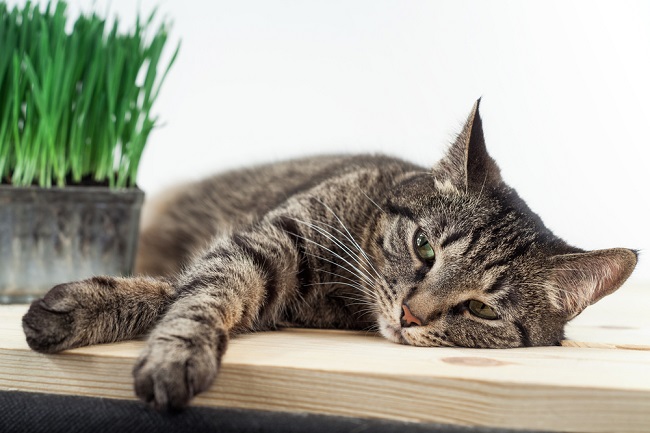Signs of Sick Cats that are Important to Recognize
The characteristics of a sick cat can be recognized from various factors, ranging from changes in behavior, appearance, activity, to their ability to socialize. If you have a pet cat at home, let's take a closer look at the characteristics of a sick cat so that it can be examined and treated quickly.
Pets, especially cats, can indeed be good friends and their presence can improve the owner's mood. Several studies have shown that cats are able to build intense intimacy, especially with the elderly and people with disabilities.
Features of a Sick Cat
When you're sick, cats will usually show certain characteristics. These traits are easy to spot, but they can also seem normal. In order not to be confused anymore, here are the characteristics of a sick cat:
1. Behavior change
A sick cat can be recognized by its behavior. Some cats can become suddenly quiet, hide often, or aren't as active as usual. Meanwhile, some cats may become fussier, stickier, or demand more attention from their owners.2. Fatigue or looking powerless
When you're sick, a cat also usually shows signs of being tired, weak, or not having enough energy. It can also show other signs and symptoms, such as:
- Sit in a bent position
- Sleeping more and not playing
- Anxiety
- Not lifting his head properly
- Tilts head frequently
3. Vomiting and not wanting to eat
The next symptom of a sick cat is vomiting and not wanting to eat. Cat vomiting is often the result of a mild stomachache, food poisoning, food allergies, or motion sickness.However, vomiting in cats can also be a sign of more serious conditions, ranging from inflammation of the pancreas, kidney disease, intestinal blockage, drug side effects, inflammatory bowel disease, to liver disease.
If your cat keeps vomiting and won't eat or drink for days, take her to the vet immediately for proper treatment.
4. Dehydration
A sick cat will also often become dehydrated. This generally happens because he does not want to eat and drink or diarrhea and vomiting a lot. When dehydrated, cats will appear very weak and tend to sleep a lot.Also, to see if your cat is dehydrated, try gently grasping the skin near the shoulder blade, pulling it up and away from its body, and then releasing it. The cat's skin should immediately return to its place. If not, it indicates that he is dehydrated.
5. Pweight loss
A cat's weight loss can also be a sign that he is sick. To check, you have to frequently feel along the ribs and spine.If your cat is losing weight, it could be a sign of certain diseases to watch out for.
6. Difficulty moving
Not only weight, you also have to be sensitive by paying attention to the movement of your cat. If he seems to have difficulty moving, can no longer jump, or changes how he jumps, your cat may have a supply problem. What's more, if the cat suddenly can't use its hind legs.
In addition to the symptoms of a sick cat above, cats can also show other symptoms, such as drinking more, diarrhea, red or watery eyes, bloody urine, crying when urinating, fever, frequent body licking, or fur. fall out.When exposed to a flea infection, cats can also appear to be scratching their bodies frequently, appear scaly or irritated on the skin, and often look fussy and uncomfortable.
These are some of the characteristics of a sick cat that are important to recognize. However, sometimes some cats can also show these characteristics even though they are actually healthy.Therefore, to make sure whether your cat is healthy or not, you should check its condition to a veterinarian, yes. You also need to take your beloved cat to the doctor as a routine check-up or check-upat least 2 times a year.
Inform your veterinarian about any changes that occur in your cat, so that their health can be continuously monitored and cat diseases can be detected early.
The vet may also recommend vaccinations to protect your cat from viral or bacterial infections.
Label : Healthy life
Comments
Post a Comment